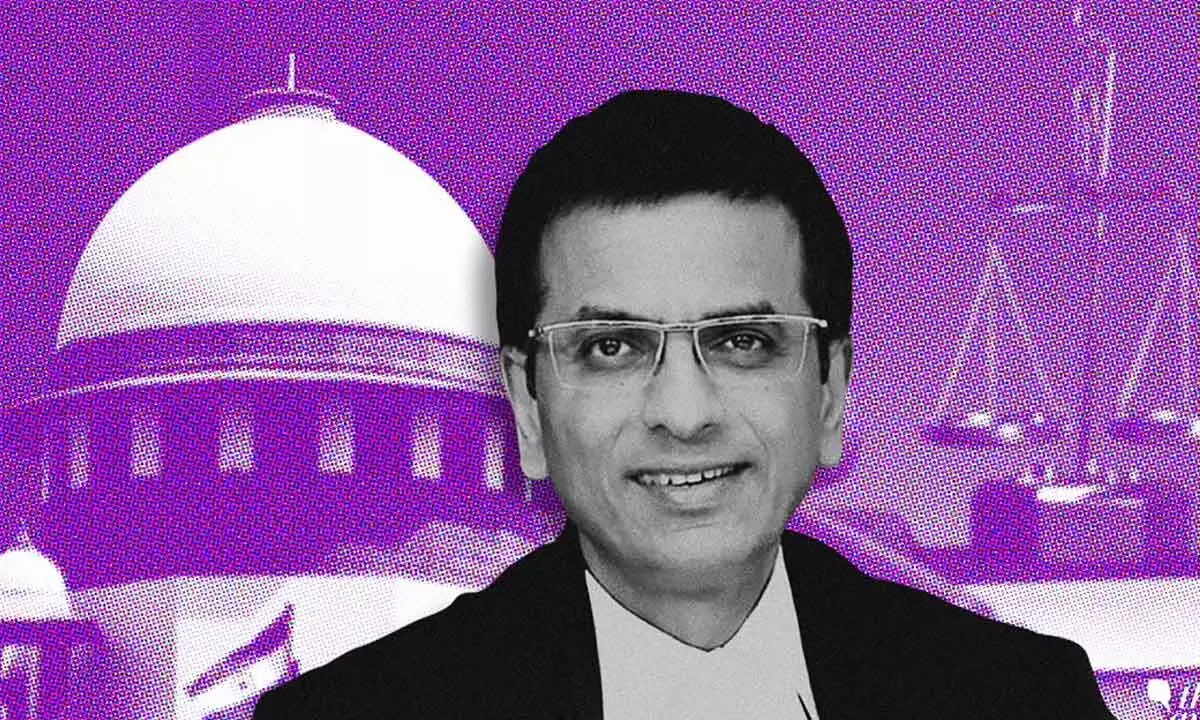Live
- Former SC judge Ramasubramanian is new NHRC chief
- Roopasri strives to secure place in hearts of theatre lovers
- TG to showcase T-Culture in big way at Bharat Parv
- Bankers told to be part of Telangana Rising
- ISTS wins ‘Excellence in Women’s Engineering Education’ award
- Hyderabad loses its Shaan-e-Benegal
- Bangladesh requests India to extradite Sheikh Hasina
- Women, elderly register for AAP 's welfare schemes
- Cyber Security Mela -2024 held
- Record 10 lakh govt jobs provided in 18 months: PM
Just In

CJI Lalit nominates his successor
New Delhi: Chief Justice of India U U Lalit on Tuesday recommended the second-most senior judge of the Supreme Court Justice Dhananjaya Yashwant Chandrachud as his successor. CJI Lalit handed over the letter to Justice Chandrachud at a gathering of SC judges in the top court's judge's lounge in the morning. When accepted by the government, Justice Chandrachud will be the 50th Chief Justice of India. With CJI Lalit set to retire on November 8, the oath-taking for his successor will be on November 9.
While CJI Lalit has only a short tenure of under three months in office, Justice Chandrachud will have a longer one and will be in office for two years, till November 10, 2024.
A Law graduate from Delhi University, Justice Chandrachud got his LLM degree and a Doctorate in Juridical Sciences (SJD) from the Harvard Law School, US.
Son of former CJI Y V Chandrachud, he then practised law at the Supreme Court and the Bombay High Court and was designated as a senior advocate by the Bombay HC in June 1998.
He also served as the additional solicitor general from 1998 until he was appointed as a judge of the Bombay High Court on March 29, 2000 and served as the director of the Maharashtra Judicial Academy. Justice Chandrachud took over as the Chief Justice of the Allahabad High Court on October 31, 2013 and was appointed a judge of the Supreme Court on May 13, 2016.
During his tenure in the SC, Justice Chandrachud penned some very important judgments that played a key role in the evolution of the country's jurisprudence.
In the landmark Justice K S Puttaswamy (retd) vs Union of India case, a nine-judge bench comprising him recognised privacy as a fundamental right. Subsequently, as part of a five-judge bench, he dealt with the constitutional validity of the Aadhaar (Targeted Delivery of Financial and Other Subsidies, Benefits and Services) Act, 2016. While the majority upheld the Act, Justice Chandrachud held it was unconstitutionally passed as a Money Bill.

© 2024 Hyderabad Media House Limited/The Hans India. All rights reserved. Powered by hocalwire.com







